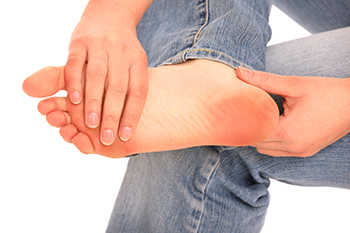Items filtered by date: November 2023
The Right Shoes for Restaurant Employees

In the bustling world of restaurant service, the right choice of footwear is not a style statement, it is a vital component of safety and comfort for employees who work on their feet for extended periods. Non-slip shoes top the list of essentials, offering stability on potentially slippery kitchen floors. These shoes, designed with slip-resistant soles, reduce the risk of accidents in fast-paced environments where spills are common. Comfort is equally important, considering the long hours spent standing and moving swiftly. Opting for shoes with adequate arch support and cushioning can alleviate foot fatigue and contribute to overall well-being. Additionally, shoes with closed toes provide an extra layer of protection against spills and falling objects. Prioritizing functionality over fashion ensures that restaurant employees can navigate their demanding work environments with confidence, focusing on delivering excellent service rather than wrestling with uncomfortable or unsafe footwear. If you are a restaurant employee and are seeking information about what type of shoes to wear, it is suggested that you speak with a podiatrist.
While working on the feet, it is important to take the proper care of them. For more information about working on your feet, contact Mohammad R. Parsa, DPM from Madison Foot Clinic. our doctor will treat your foot and ankle needs.
Working on Your Feet
Standing on your feet for long periods of time can cause stress and pain in your feet. Your whole body may experience change in terms of posture, back pain, bunions, callouses and or plantar warts. There are ways to avoid these conditions with proper foot care, smart choices and correct posture.
Positive Changes
Negative heeled shoe – Choosing this shoe type places the heel slightly lower than the ball of the foot. These are great for overall foot health. Find shoes that fit you correctly.
Go barefoot – Our feet were not designed to be enclosed for all hours of the day. Try to periodically expose your feet to air.
Eliminate Pain
Foot Exercises – Performing simple exercises, incorporating yoga and doing stretches are beneficial. This will allow increased blood flow to the area and muscles of the foot.
Achilles tendon – Stretching the foot out flat on the floor will relax the calf muscles and tendon. These exercises can be performed almost anywhere. Make sure you add these exercises to your daily regimen.
With a little bit of this information and knowing more about foot health, you will notice changes. Foot stretches and proper footwear will help with pain and prevent further issues.
If you have any questions please feel free to contact our office located in Madison, MS . We offer the newest diagnostic and treatment technologies for all your foot and ankle needs.
Managing Chronic Wounds

Chronic wounds on the lower legs, feet, and toes demand a specialized approach from podiatrists to ensure optimal healing. The process begins with cleaning of the wound and removing any debris. In cases of traumatic injury, a podiatrist may recommend a tetanus vaccination to prioritize your safety. This foot doctor may surgically remove dead skin and close wounds with stitches or staples. Dressing choices for chronic wounds are critical, often leaning toward moist dressings tailored to specific wound characteristics. Vigilant monitoring for signs of infection is a key responsibility, with prescribed antibiotics and antimicrobial dressings essential for effective control. A thorough review of patient medications and adjusting as needed, is essential for patient safety. Specific wounds like ulcers may require specialized treatments, including antibiotics or skin grafts. In cases where poor blood supply hampers healing, a podiatrist may recommend vascular surgery to improve circulation. If you are experiencing chronic foot wounds, it is suggested that you schedule an appointment with a podiatrist for a comprehensive treatment plan.
Wound care is an important part in dealing with diabetes. If you have diabetes and a foot wound or would like more information about wound care for diabetics, consult with Mohammad R. Parsa, DPM from Madison Foot Clinic. our doctor will assess your condition and provide you with quality foot and ankle treatment.
What Is Wound Care?
Wound care is the practice of taking proper care of a wound. This can range from the smallest to the largest of wounds. While everyone can benefit from proper wound care, it is much more important for diabetics. Diabetics often suffer from poor blood circulation which causes wounds to heal much slower than they would in a non-diabetic.
What Is the Importance of Wound Care?
While it may not seem apparent with small ulcers on the foot, for diabetics, any size ulcer can become infected. Diabetics often also suffer from neuropathy, or nerve loss. This means they might not even feel when they have an ulcer on their foot. If the wound becomes severely infected, amputation may be necessary. Therefore, it is of the upmost importance to properly care for any and all foot wounds.
How to Care for Wounds
The best way to care for foot wounds is to prevent them. For diabetics, this means daily inspections of the feet for any signs of abnormalities or ulcers. It is also recommended to see a podiatrist several times a year for a foot inspection. If you do have an ulcer, run the wound under water to clear dirt from the wound; then apply antibiotic ointment to the wound and cover with a bandage. Bandages should be changed daily and keeping pressure off the wound is smart. It is advised to see a podiatrist, who can keep an eye on it.
If you have any questions, please feel free to contact our office located in Madison, MS . We offer the newest diagnostic and treatment technologies for all your foot care needs.
Definition and Risk Factors of Gout

Gout is a form of arthritis characterized by sudden, severe attacks of pain, swelling, redness, and tenderness in the joints. It typically affects the joint at the base of the big toe, but other joints can also be involved. Gout is caused by the buildup of uric acid crystals in the affected joint, which leads to inflammation and excruciating pain. While gout can affect anyone, it predominantly targets men, especially those over the age of 30. Women become more susceptible after menopause. Individuals with a family history of gout are at a higher risk, as genetics can play a significant role. Lifestyle factors such as a diet rich in purine-containing foods that include red meat, seafood, and alcohol, may significantly contribute to developing gout. Additionally, obesity and high blood pressure also increase the likelihood of getting gout. Understanding the definition and risk factors of gout is vital for timely diagnosis and effective management. If you have gout, it is strongly suggested that you are under the care of a podiatrist who can help you to manage this condition, in addition to offering you effective prevention strategies.
Gout is a painful condition that can be treated. If you are seeking treatment, contact Mohammad R. Parsa, DPM from Madison Foot Clinic. our doctor will treat your foot and ankle needs.
What Is Gout?
Gout is a form of arthritis that is characterized by sudden, severe attacks of pain, redness, and tenderness in the joints. The condition usually affects the joint at the base of the big toe. A gout attack can occur at any random time, such as the middle of the night while you are asleep.
Symptoms
- Intense Joint Pain - Usually around the large joint of your big toe, and it most severe within the first four to twelve hours
- Lingering Discomfort - Joint discomfort may last from a few days to a few weeks
- Inflammation and Redness -Affected joints may become swollen, tender, warm and red
- Limited Range of Motion - May experience a decrease in joint mobility
Risk Factors
- Genetics - If family members have gout, you’re more likely to have it
- Medications - Diuretic medications can raise uric acid levels
- Gender/Age - Gout is more common in men until the age of 60. It is believed that estrogen protects women until that point
- Diet - Eating red meat and shellfish increases your risk
- Alcohol - Having more than two alcoholic drinks per day increases your risk
- Obesity - Obese people are at a higher risk for gout
Prior to visiting your podiatrist to receive treatment for gout, there are a few things you should do beforehand. If you have gout you should write down your symptoms--including when they started and how often you experience them, important medical information you may have, and any questions you may have. Writing down these three things will help your podiatrist in assessing your specific situation so that he or she may provide the best route of treatment for you.
If you have any questions, please feel free to contact our office located in Madison, MS . We offer the newest diagnostic and treatment technologies for all your foot care needs.
Are You Suffering From Ingrown Toenails?
Common Foot Problems

Our feet bear the weight of our bodies and help us to move about. However, they are also susceptible to a range of common problems that can be quite uncomfortable. One prevalent issue is bunions, which occur when the big toe joint becomes misaligned and causes a painful bump. Another common ailment is plantar fasciitis, characterized by sharp heel pain due to inflammation of the tissue that supports the arch of the foot. Ingrown toenails can be particularly bothersome, causing pain and potential infection. Athlete's foot is a fungal infection that leads to itching and peeling skin on the feet. Corns and calluses are also frequent, resulting from friction and pressure on the skin. To keep your feet in top shape, it is essential to be mindful of these common problems. If you have any type of foot pain, it is suggested that you are under the care of a podiatrist who can offer the correct treatment for your problem.
Foot Pain
Foot pain can be extremely painful and debilitating. If you have a foot pain, consult with Mohammad R. Parsa, DPM from Madison Foot Clinic. our doctor will assess your condition and provide you with quality foot and ankle treatment.
Causes
Foot pain is a very broad condition that could be caused by one or more ailments. The most common include:
- Bunions
- Hammertoes
- Plantar Fasciitis
- Bone Spurs
- Corns
- Tarsal Tunnel Syndrome
- Ingrown Toenails
- Arthritis (such as Gout, Rheumatoid, and Osteoarthritis)
- Flat Feet
- Injury (from stress fractures, broken toe, foot, ankle, Achilles tendon ruptures, and sprains)
- And more
Diagnosis
To figure out the cause of foot pain, podiatrists utilize several different methods. This can range from simple visual inspections and sensation tests to X-rays and MRI scans. Prior medical history, family medical history, and any recent physical traumatic events will all be taken into consideration for a proper diagnosis.
Treatment
Treatment depends upon the cause of the foot pain. Whether it is resting, staying off the foot, or having surgery; podiatrists have a number of treatment options available for foot pain.
If you have any questions, please feel free to contact our office located in Madison, MS . We offer the newest diagnostic and treatment technologies for all your foot care needs.

